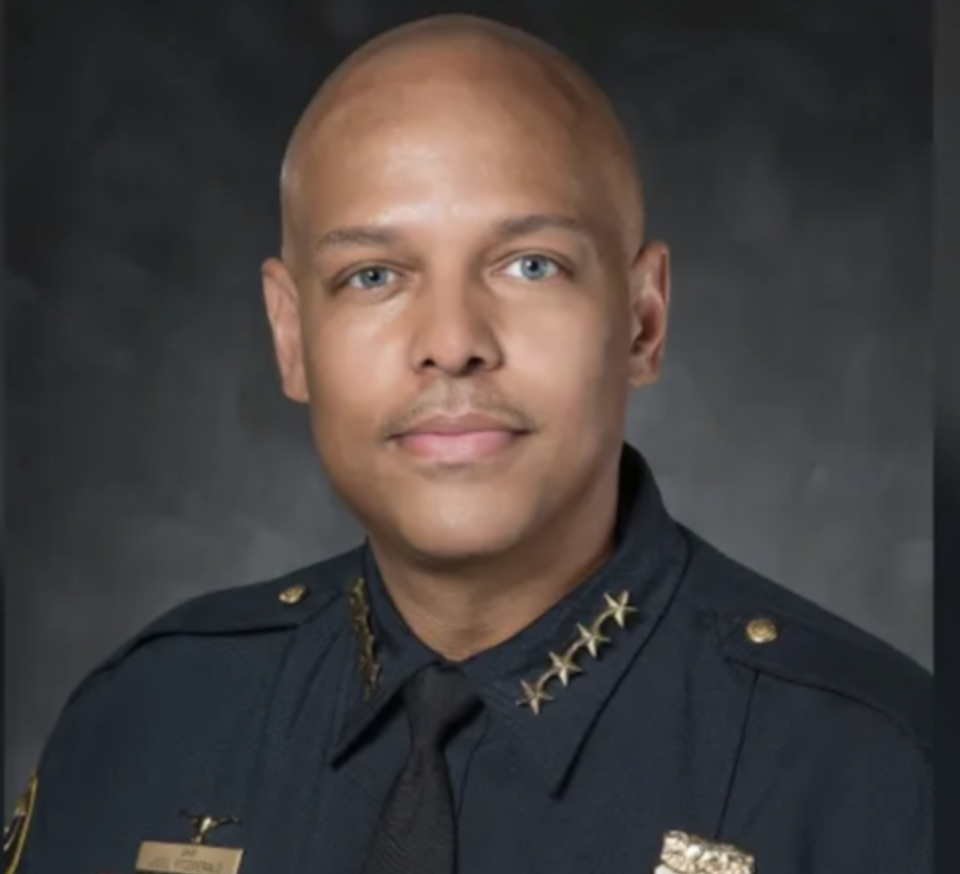
September 30, 2024
Documents Show Denver’s First Black Transportation Police Chief Was ‘Terminated For Cause’
Until recently, it was not clear if Regional Transportation District Police Chief Joel Fitzgerald was fired or if he voluntarily resigned.
Amid speculation as to whether Denver’s former Regional Transportation District (RTD) Police Chief Joel Fitzgerald was fired or voluntarily resigned, new documents released by the State of Colorado’s Peace Officer Standards and Training Database indicated that Fitzgerald had been “Terminated For Cause.”
According to CBS News, on Sept. 20, RTD CEO Debra Johnson announced that Fitzgerald was not employed by the RTD per a memo sent to all employees. However, in the memo, Johnson omitted whether Fitzgerald had been fired or resigned from his duties. Johnson also declined to say what led to Fitzgerald’s exit, but she did tell the outlet that she planned to share her “plans for interim leadership” in the days ahead.
Although the POST database says that Fitzgerald was fired for cause, the RTD told CBS News that they do not have any records of either termination or separation for Fitzgerald. A spokeswoman also told CBS News that RTD “adheres to the Peace Officer Standards and Training (POST) Board regulations and its reporting requirements” but did not comment on his termination.
There are reports of various violations of which Fitzgerald has been accused.
Data from a transponder attached to the vehicle assigned to Fitzgerald indicated that the car recorded over a dozen instances of speeds exceeding 100 mph, along with numerous trips surpassing 90 mph, between November 2023 and May 2024, CPR News reports.
It remains unclear if his firing will impact Fitzgerald’s ability to be in law enforcement in Colorado, but the Colorado Attorney General’s office told CBS News in a statement that “termination for cause may not necessarily lead to decertification.”
Spokesperson Lawrence Pacheco states, “State law specifies the conduct for which an officer may be decertified (e.g., felony or specific misdemeanor convictions, untruthfulness, etc.).”
Fitzgerald had been on leave since July 2024 while an investigator looked into “alleged policy violations” amid warnings from some who served under Fitzgerald that they had “a chief who is never in town” and that “he has history.”
That “history” referred to by some of Fitzgerald’s junior officers is likely in reference to his lawsuit against the City of Fort Worth.
In that lawsuit, which was resolved after a five-year battle in August 2024, Fitzgerald’s grievance maintained that Fort Worth fired him in 2019, just before he was set to meet with FBI investigators.
Fort Worth City Manager David Cooke said he fired Fitzgerald because “a change in leadership was necessary for the citizens of Fort Worth and the men and women of the Fort Worth Police Department.”
However, Fitzgerald was also a candidate for the same position in Baltimore, but after the NAACP questioned if he was the right fit for the job, Fitzgerald withdrew his candidacy, citing the support he received from the Fort Worth community.
According to data from the Center for Policing Equity, cases like Fitzgerald’s in Colorado are the norm, not the exception. Decertification standards and processes don’t have a national standard, making holding officers accountable impossible, particularly when the line between an officer being fired and resigning is blurred.
In a 2023 report, “Second Chances for Dangerous Police Officers are Not Worth the Risks,” the Center for Policing Equity made a call to action, stating, “As armed agents of the state with a legal monopoly on violence, police officers must be held to a standard at least as high as the stakes of their job. In order to do that, not only must law enforcement agencies build reliable databases on police behavior; policymakers must also require that officers who get fired, stay fired.”
RELATED CONTENT: Investigation Reveals Body Cams Only Work Properly Without Police Intervention And Following Proper Protocol